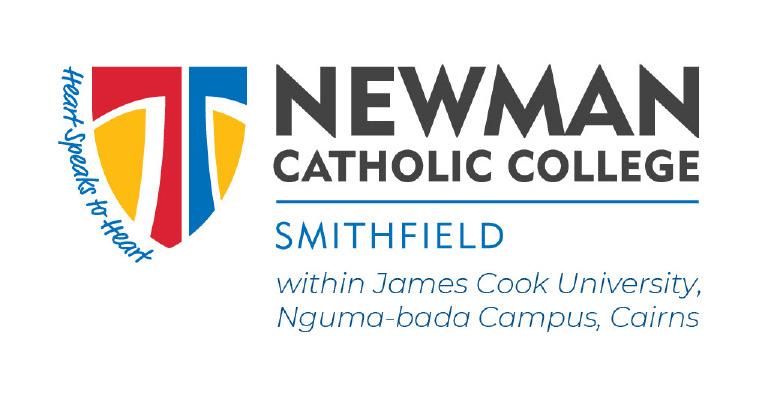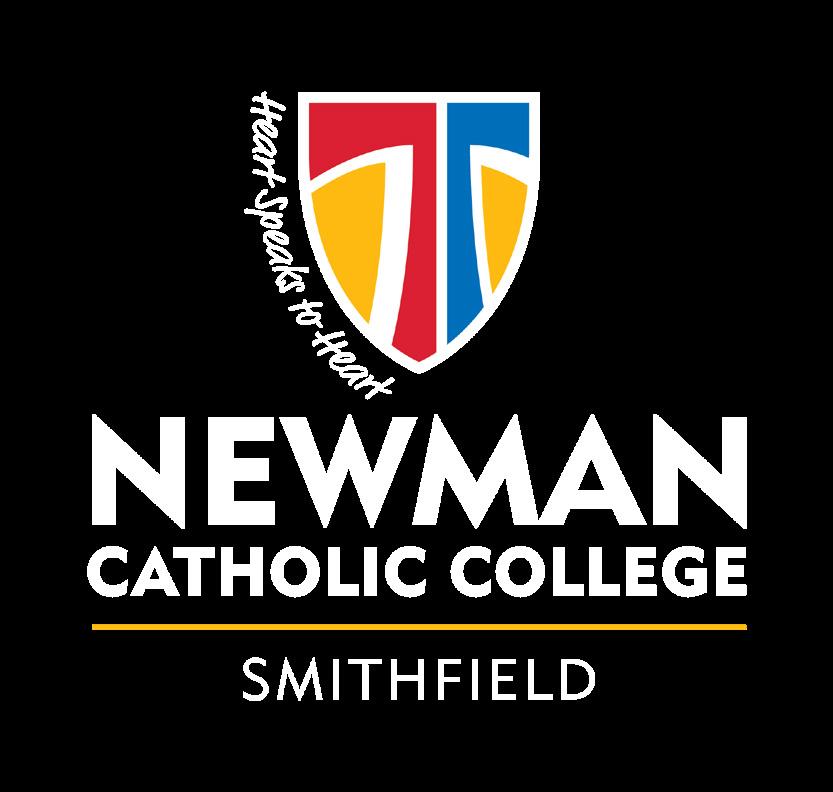
“
A great memory does not make a mind, any more than a dictionary is a piece of literature.

- St John Henry Newman


“
A great memory does not make a mind, any more than a dictionary is a piece of literature.

- St John Henry Newman
Newman Catholic College is a welcoming and inclusive community and has at its heart an Encounter with the Gospel and a clear Catholic Identity. Here we:
Give daily witness to the presence of Christ amongst us,
Inspire and support others to seek the Truth,
Support innovative thinkers to teach and learn together.
Together with James Cook University we believe in the power of education to develop people to lead lives of purpose and meaning.
If “we love one another, God remains in us” (1Jn4:12) ... so ... “let all that we do be done in love” (1Cor16:14)
As fully participating members of our Catholic College Community we will:
Give witness to the presence of Christ amongst us.
Be open to a personal encounter with Christ.
Engage in prayer and worship to experience the sacred mystery of God’s presence.
Appreciate the centrality of the Eucharist to our Catholic story.
Celebrate the First Nations peoples who continue to enrich our Newman Catholic College story.
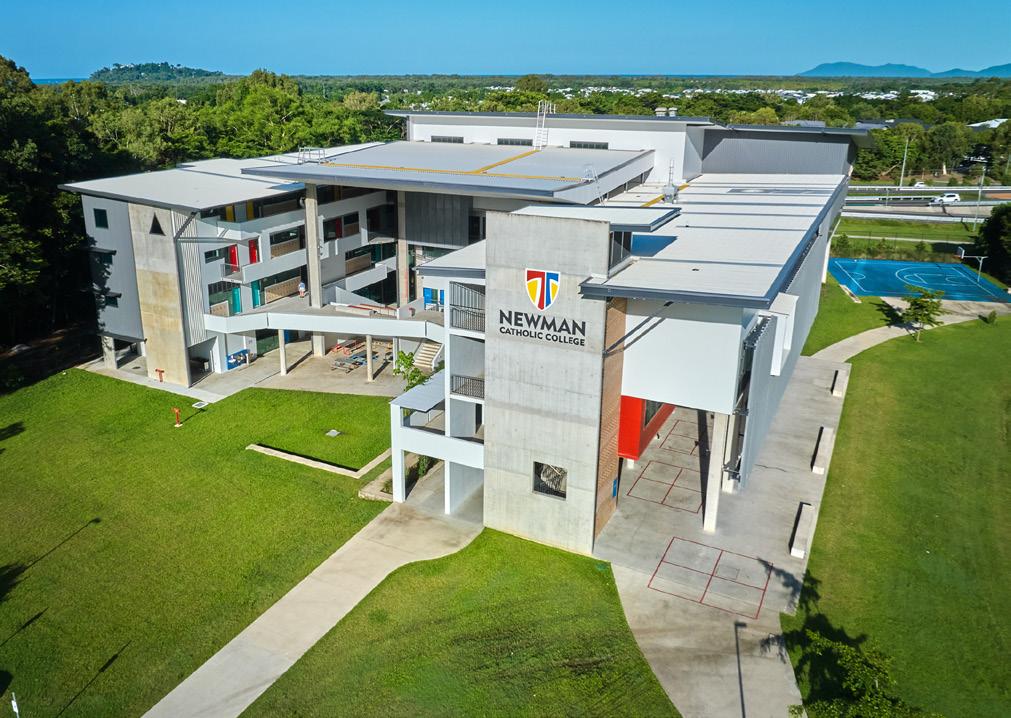
Celebrate and educate the whole person, acknowledging gifts and talents, rights and responsibilities, and culture.
Strive to remain exemplary, relevant, contemporary, adaptable, future focused and agile enough to respond to future change.
Share and seek the truth of Christ’s message passionately.
Value positive relationships including all members of family, parish, and community.
Teach all to see the beauty and the goodness of creation and of humanity, which always retains the imprint of the Creator.
Acknowledge and promote the wellbeing of all within the community.
Embrace our responsibility to serve others.
Foster meaningful and respectful relationships with the James Cook University community and the wider Smithfield and Cairns communities.
Please select one subject from each of the following lines for the entire year.
choose one subject from each of the following lines
Line B
• Ancient History
• Drama
• Fashion
ONE & TWO Line A
• Health Science
• Introduction to Sport, Fitness & Recreation
• Marine Science
• Music In Practice
• Robotics
• Aerospace
• Cert II in Sport Coaching
• Dance
• Economics & Business
• Engineering Materials
• Geography
• Interactive Multimedia Development
• Italian (Cert II & General)
• Japanese (Cert II & General)
• Visual Arts
Line C
• Earth & Environmental Science
• Food Technologies
• Legal Studies
• Media Arts
• Music Performance
• Physical Education
• 3D Printing & Manufacturing
• STEM Excellence
• Web Design & Development

It is my pleasure to welcome you to the next phase of your learning journey. The staff at Newman Catholic College wish you every success in the courses you choose. Choose wisely taking into consideration the things you enjoy studying and where your talents lie. This is the best formula for success. There are aspects of your timetable that are compulsory, but electives are an opportunity to excel in the areas of your choice.
When students come to our College, we make a commitment to provide them with the opportunities and support to achieve not only excellent academic progress, but also fundamental life skills such as effective listening, creativity and problem solving. The attitude and atmosphere of our College is one which always strives to achieve quality learning and never settles for anything less. As our students take up their leadership roles, seats in our classroom, or when they are honing their skills in the sporting fields and/or the performing arts stages, it is exactly this attitude that we aim to inspire in all our students with everything that they do.
I sincerely thank parents as their child’s first educator, for starting this foundation work with their children. We intend to further develop these characteristics, and attitudes that help young learners to manage their time, get along with others, think critically, problem solve, and behave in an ethical manner. These essential abilities are known as transferable skills (Appleby, 2001), they can be developed in one environment and then transferred to future environments (eg. college, university, and the workplace) providing a platform for future success.

Following on from this, it is our aim to develop in our students a lifelong passion for learning and a genuine interest in their environment and the people around them. At Newman this will be done through a curriculum that is forward thinking, innovative, digital and design focused. It is strategic in its intent. We wish all students success. Enjoy the amazing subject selection that comes to you as a gift from our dedicated and talented staff in this handbook

Welcome to Year 10! Year 10 is the final year in a phase of schooling known as the compulsory participation phase. After this year, students are able to select from a range of potential pathways including full-time work, full-time apprenticeships, school-based apprenticeships, and for the majority of our surveyed students, completing Year 11 and 12. Due to this metaphorical “fork in the road” of potential pathways post Year 10, we are offering a comprehensive range of opportunities in Year 10 to assist in the preparation of our students in their transition to work, training or senior schooling.
Changes to the Year 10 timetable structure include:
• Health and Physical Education is no longer a core subject and is now offered as an elective.
• Students will continue selecting at least 3 electives, however, electives will now run for the full year.
• English and Math classes will look similar on a timetable, however, have been strategically designed by our curriculum HoD’s to incorporate elements of transition to most likely senior Math and English options based on current skill levels. For example, the English one class will have elements of senior Literature preparation embedded and the Maths six class will have a short course numeracy embedded to allow students to gain their numeracy ticks in advance of senior years while also preparing candidates for school-based apprenticeships to complete the Literacy and Numeracy (LLN) components of their TAFE courses.

Wilbur Donovan Deputy Principal - Academic Studies
• All students in Year 10 will complete one lesson a week dedicated to career preparation.
• There are now added electives for VET qualifications or VET preparation from Year 10.
For further information on any of our offerings, our Subject Selection Expo on Monday 19th of August, will provide families with an opportunity to discuss subject offerings with the teachers and middle leaders responsible for individual subjects and key learning areas. Any further questions may be directed to your child’s Learner Mentor who will then forward on to the relevant staff member for a response.
Finally, I would like to thank all families who took the time to complete the Senior Pathways Survey. It has allowed us to tailor our offerings for our foundation cohort for Year 10 2025 and senior years beyond that. Further information regarding your child’s involvement in their indicated preferred pathways will be provided over the course of the next 18 months.
Thank you again for all your support with subject selections and for any enquiries or feedback regarding subjects and the subject selection process, please do not hesitate to contact me at ncc.dpacademicstudies@cns.catholic.edu.au



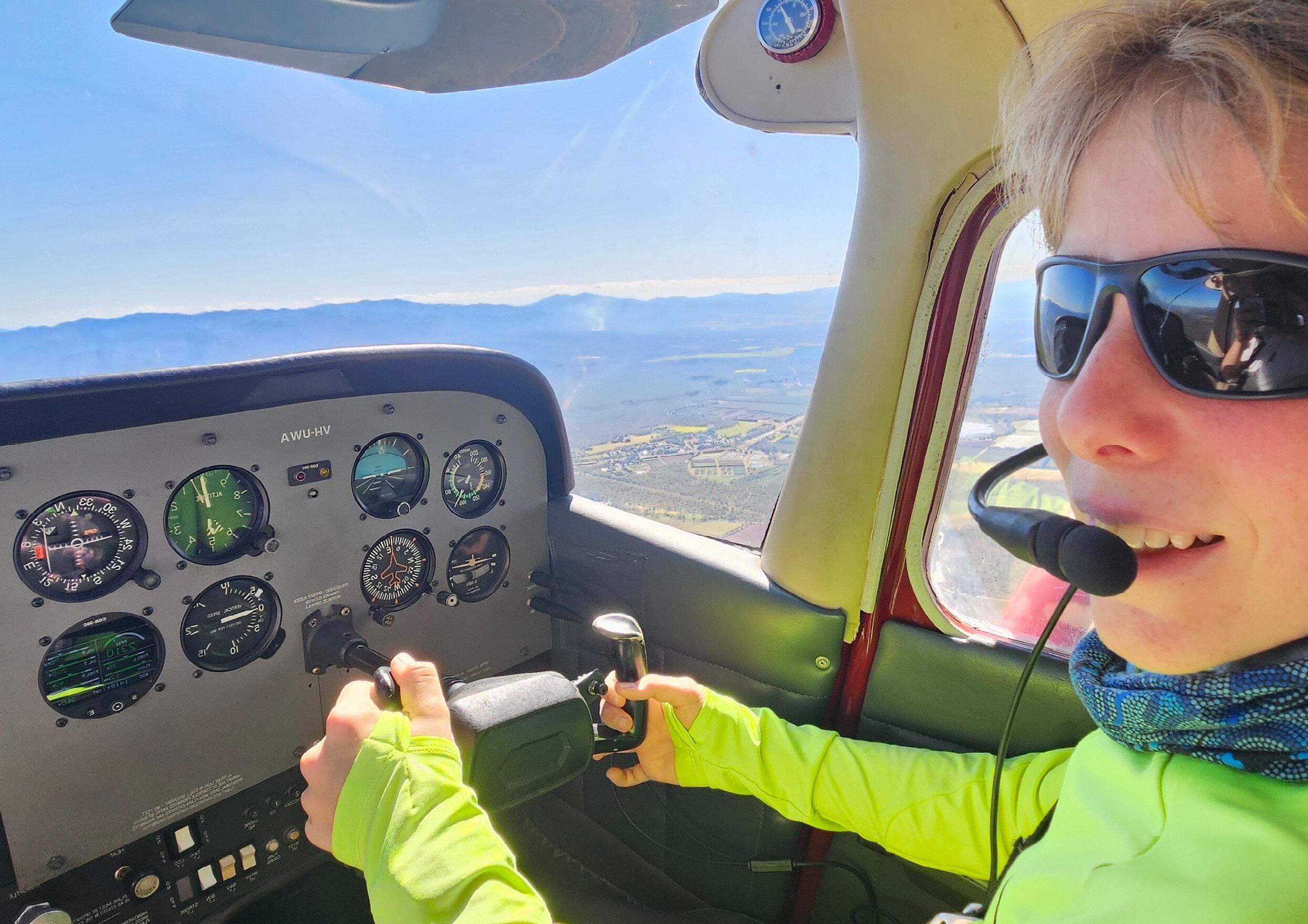
PREREQUISITES: Year 9 Aerospace or by Application to Mr Chen
Selecting Year 10 Aerospace Systems provides students with a foundational understanding of the aerospace industry and its technological challenges. This subject introduces students to the fundamentals of aeronautics, aerospace operations, and safety management, equipping them with the skills to address real-world aerospace problems. Through the use of systems thinking and problem solving strategies, students will learn to analyse and interpret complex systems, identify patterns, and propose solutions.
By engaging in this subject, students develop essential skills such as critical thinking, creative problem solving, and decision making. They also enhance their ability to work independently and collaboratively, preparing them for future studies and careers in aerospace and related fields. The course emphasises the importance of understanding the long-term implications of technological solutions and fosters adaptability and resilience. Students will gain transferrable 21st century skills, including communication, collaboration, and ICT proficiency, which are valuable across various disciplines. Overall, Year 10 Aerospace Systems offers a solid foundation for students interested in exploring the dynamic and innovative world of aerospace technology.
Knowledge and skills covered during this subject:
Fundamentals of Aeronautics:
• Principles of flight, aerodynamics, and the forces on an aircraft.
• Exploration of the aerospace industry’s history and key advancements.
Aerospace Operations:
• Insights into aircraft maintenance, navigation, and air traffic control.
• Understanding the roles of professionals in the aerospace field.
Systems Thinking:
• Applying systems thinking to understand the interconnectedness of aerospace components.
• Analysing complex aerospace systems to identify patterns and potential issues.
Problem Solving:
• Using problem solving processes to address real-world aerospace challenges.
• Engaging in projects that apply theoretical knowledge to practical situations.
Critical and Creative Thinking:
• Evaluating aerospace technologies and systems, considering technical and ethical implications.
• Proposing innovative solutions to aerospace problems.
This course provides a foundational introduction to aerospace systems, preparing students for further studies and careers in the aerospace field.
HOMEWORK AND STUDY EXPECTATIONS:
This elective is mainly practical but includes some theory. Most work is done in class, with unfinished tasks completed as homework. Hands-on learning is emphasised and supported by relevant theoretical concepts.
LINKS TO YEAR 11 & 12
Year 11 & 12: QCAA General Aerospace VET Cert III in Aviation (Remote Pilot).
ADDITIONAL COST PER STUDENT NIL
PREREQUISITES: NIL

The Ancient History subject enables students to study life in early civilisations based on the analysis and interpretation of physical and written remains. The ancient period extends from the development of early human communities to the end of late antiquity AD 650, with a particular focus on the ancient societies of Europe, the Near East and Asia.
By selecting this elective, students can engage with and learn from ancient societies, and have a deeper understanding of Ancient History in Years 11 and 12.
Some of the knowledge and skills covered during the year will include:
• Unit 1: Investigating the Ancient World - This unit involves an investigation of how the ancient world has been represented. This involves an exploration of the remaining sources and how they have been interpreted. This unit focuses on issues relevant to the investigation of the ancient world and builds on the historical skills developed up to Year 10.
• Unit 2: Ancient Societies - This unit involves an investigation of how people lived in the ancient world through an examination of the evidence of the social, political and economic institutions and structures of TWO societies. Students will also study ONE significant feature of society and how it relates to the institutions and structures studied.
• Unit 3: People, Power and Authority - This unit involves an investigation of ONE ancient society across a broad historical period, with a particular emphasis on the nature and exercise of power and authority in that society. Students also study ONE individual who had a significant impact on their times, either within the chosen society or another society.
• Unit 4: Reconstructing the Ancient World - This unit involves an investigation of a significant historical period through an analysis of relevant archaeological and written sources. Students will examine how these sources have been used to construct an understanding of the relevant social, political, religious and economic institutions and practices, and key events and individuals of the historical period.
This elective is predominately a theoretical subject, with the potential to engage in excursions and discussions with guest speakers and experts. Formal homework will be given on a semi-regular basis. The majority of work will be completed in class time however you will be required to complete some flipped learning (perusing content before then discussing it in class), as well as using both some inclass, and majority home-time, to complete assignments.
Links to Ancient History (QCAA General Subject) in Year 11 & 12.
PREREQUISITES: By Application Only to Mr Castiglio

This qualification provides an introduction to the construction industry, its culture, occupations, job roles and workplace expectations.
The units of competency cover essential work health and safety requirements, the industrial and work organisation structure, communication skills, work planning, and basic use of tools and materials. The qualification is built around a basic construction project unit that integrates the skills and embeds the facets of employability skills in context.
• Work effectively and sustainably in the construction industry | CPCCOM1012
• Plan and organise work | CPCCOM1013
• Conduct workplace communication | CPCCOM1014
• Handle construction materials | CPCCCM2004*
• Use construction tools and equipment | CPCCCM2005*
• Apply WHS requirements, policies and procedures in the construction industry | CPCCWHS2001
• Undertake a basic construction project | CPCCVE1011*
• Undertake basic estimation and costing | CPCCCM1011
• Carry out measurements and calculations | CPCCOM1015
• Read and interpret plans and specification | CPCCOM2001*
• Prepare to work safely in the construction industry (Delivered by outside RTO) | CPCWHS1001
Assessment is competency based and completed in a simulated Construction Industry environment. Units of competency are clustered and assessed in this way to replicate what occurs in industry as closely as possible.
Assessment techniques include:
• Observation
• Folios of work
• Questioning
• Projects
• Written and practical tasks
*This elective is predominately a practical subject however formal homework will be given if the student is unable to complete the required work during class time.
The skills achieved will assist in successfully undertaking a Certificate II pre-vocational program or job outcome qualification or will facilitate entry into an Australian School-based Apprenticeship.
A levy of $100 per term to cover workshop equipment, tools, materials, consumables and certificates.
Additional cost for the Construction Industry White Card is approximately $80.00.
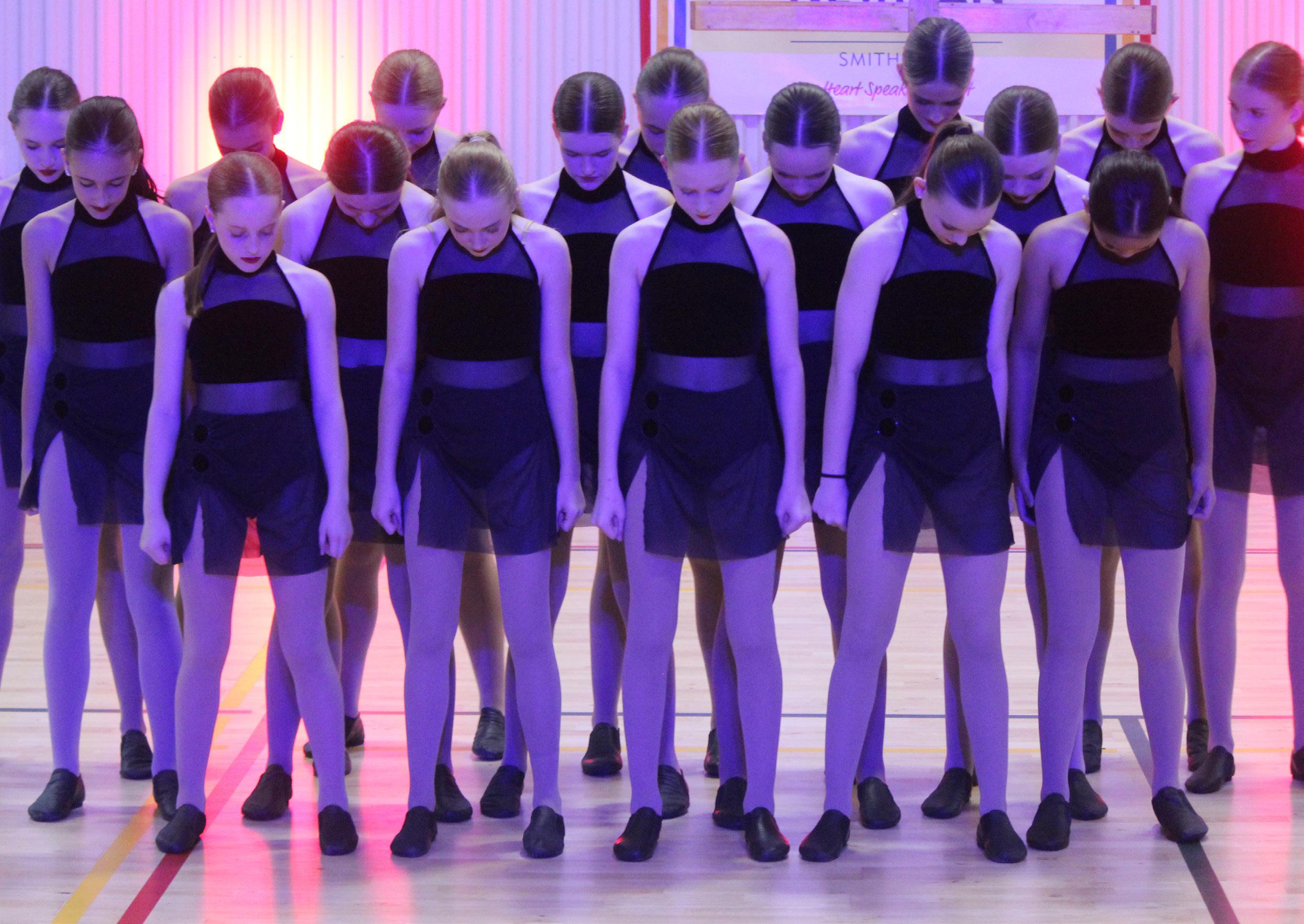
PREREQUISITES: One term of Year 7, 8 or 9 Dance or by Application to Ms Matthews
Dance offers students the opportunity to foster their performance skills and technique across a range of genres and styles. It is a collaborative subject for highly motivated students not only for those who are passionate about performing and choreographing but also for those interested in the theoretical side of analysing and evaluating dance. Students explore a range of social, historical and political perspectives through the creation of their own innovative danceworks and dance films. Students will have the opportunity to perform these works to a live audience. Students do not need to be studying dance at a studio as the subject is an inclusive space where students of all backgrounds, genders and abilities can experience success.
Dance fosters creative and expressive communication by using the body as an instrument for sharing ideas. This discipline offers students the chance to critically reflect on their world, promoting higher-order thinking through movement. Dance supports holistic development, helping students understand themselves, others, and the world around them. Additionally, dance promotes teamwork, discipline, and perseverance through collaborative creation and performance. Choosing dance allows students to explore creativity, build self-confidence, and appreciate diverse artistic expressions, enriching their educational experience and contributing to personal growth.
Dance has three dimensions of assessment and students can expect the following learning experiences across each:
• Performance: performance of learnt choreography from teacher and guest artists across a range of genres and styles (including but not limited to): contemporary, jazz, musical theatre, hip hop and commercial.
• Students are expected to perform to a live audience at events such as assemblies, arts evenings etc - outside of school hours.
• Choreography: participation in choreographic workshops that underpin the dance concepts and skills, including the application and manipulation of choreographic devices and dance elements to communicate a narrative, theme or viewpoint. Students are responsible for their section of work within an overall piece that is individually assessed within a group.
• Theory: analysis and evaluation of a range of danceworks with varying contexts and choreographic intents. The three written responses in dance cover: choreographic statement of intent, explanation of choreographic challenges and how these were overcome and extended analytical essay in response to a focus question based on the dance concepts and skills.
Due to the project and choreography component of this subject, students will need to make themselves available for lunchtime, after school and weekend rehearsals with peers to create, refine, film and perform / edit danceworks. These are often at various site-specific locations determined by theme and choreographic intent.
Year 10 Dance aligns with the QCAA Year 11 & 12 General Dance ATAR subject.
PREREQUISITES: NIL

Studying Drama offers a multitude of benefits by fostering personal development, self-expression, confidence, and empathy. Drama enhances communication skills, both verbal and non-verbal, and encourages creativity and imaginative thinking. Students develop emotional intelligence and critical thinking as they analyse scripts, characters, and performances. Cultural awareness is expanded through exploring diverse theatrical traditions.
Drama also cultivates performance skills such as voice projection, physical expression, and collaboration. It empowers students to express themselves and tell meaningful stories while nurturing teamwork and respect for others. Regardless of future career paths, drama education provides valuable tools for personal growth, communication, creativity, and critical thinking that are applicable in various contexts.
Run as a year long course, drama units will include and not subject to the following units:
• Unit 1 - Comedy Unleashed: From Concept to Comedy. Focuses on students collaborating to rehearse, polish, and present a devised comedy scene for a formal.
• Unit 2 - Drama Dissected: Mastering Masks, Puppetry and Performance. Encompasses students analysing and evaluating the elements of drama in a live performance and creating a non-realistic puppetry performance with storyboard documentation and masks.
This elective is predominantly practical; however, formal homework will be given. The majority of work will be completed during class time. Nevertheless, you will be required to analyse scripts, develop characters, reflect on performances, research theatrical traditions, write plays, rehearse regularly, and participate in group projects.
The foundational skills gained in Year 10 Drama support students aiming for tertiary education in performing arts, theatre studies, or related fields. Drama education provides a pathway to careers in acting, directing, stage management, scriptwriting, and other roles within the creative industries.
The communication, collaboration, creativity, and critical thinking skills developed through drama are valuable in various professional contexts, enhancing employability in numerous fields.
By aligning with Version 9 of the ACARA curriculum, Year 10 Drama ensures students acquire a solid foundation, facilitating a smooth transition to more advanced studies and diverse career opportunities in the Performing Arts and beyond.


Choosing Earth & Environmental Science as an elective offers Year 10 students a unique opportunity to explore the intricate systems that sustain our planet. This course equips students with essential knowledge about the Earth’s processes, environmental challenges, and sustainable practices whilst also developing critical thinking skills. By studying a variety of topics such as climate change, natural hazards, mineral resource management, and ecosystem dynamics, students develop critical thinking skills and scientific literacy that are crucial for addressing real-world issues.
Moreover, this elective fosters a deeper appreciation for the environment and encourages proactive attitudes toward conservation and sustainability. It not only prepares students for future scientific studies and careers but also empowers them to make informed decisions and contribute positively to their communities and the planet.
Some of the knowledge and skills covered during the year will include:
• Scientific inquiry and investigation through practical activities.
• Identifying and interpreting geological formations and structures and analysing plate tectonic and volcanic activity.
• Conducting field studies and geological surveys using scientific instruments to collect, record, and analyse field data.
• Investigating the Earth’s internal structure and processes through modelling activities.
• Examining the atmosphere, hydrosphere, and biosphere interactions to develop understanding of the water cycle and climate systems.
This elective is predominantly a practical subject however formal homework will be given weekly. The majority of work will be completed in class time however you will be required to revise the concepts taught and undertake additional independent reading if you wish to access the higher grades.
Links to potential QCAA Earth & Environmental Science Year 11 course.
Supports the skills and understanding requirements for students wishing to study any of the Senior Sciences.
NIL

PREREQUISITES: NIL

In Year 10, students begin to have a greater awareness of financial decisions and factors on a national and global scale, and how these impact them personally. By studying Economics and Business in Year 10, students consider and explore:
• What processes governments use to manage economic decision-making.
• How the government intervenes in the economy to improve economic performance and living standards.
• Why a continuing focus on workforce efficiency and productivity important for the success of business.
• How Australia’s superannuation system support human wellbeing, a prosperous economy and the common good.
• What factors influence decision-making within consumer and financial contexts, and how participants are impacted.
The focus of learning in Year 10 is the topic “productivity, growth and living standards” within a national context. Students investigate a range of factors that influence individual, financial and economic decision-making.
They examine the government’s management of the economy to improve economic growth and living standards. They also study the responses of business to changing economic conditions, including the way they improve productivity and manage their workforce.
Students also explore Australia’s superannuation system and the factors that influence major consumer and financial decisions are also considered for how they contribute to human and financial wellbeing and the common good of society.
This elective is predominately a theoretical subject, with the opportunity to engage in excursions and discussions with guest speakers and experts. Formal homework will be given on a semi-regular basis. The majority of work will be completed in class time however you will be required to complete some flipped learning (perusing content before then discussing it in class), as well as using both some inclass, and majority home-time, to complete assignments.
Links to Economic (QCAA General Subject) in Years 11 & 12, as well as Business (QCAA General Subject) in Years 11 &12.
Also links to Business Studies (QCAA Applied Subject) in Years 11 & 12, or a Cert II in Business Studies (potential in Years 11 & 12).
NIL


PREREQUISITES: Year 9
Engineering Materials or by Application to Mrs Auld
Year 10 Engineering Materials offers a comprehensive exploration of advanced engineering principles, focusing on practical skills in design, prototyping, and project management. Students engage in hands-on projects involving materials such as wood and metal, and utilize workshop machinery and hand tools, which fosters their problem-solving and creative thinking abilities. The course emphasises critical thinking and graphical communication skills, including 2D and 3D design techniques, essential for presenting innovative solutions. By managing projects from planning through execution, students gain valuable experience in project management and safety. They also address ethical, legal, and sustainability factors in design, connecting classroom learning to real-world applications. This subject equips students with the skills to tackle complex design challenges, making it an excellent foundation for further education and careers in engineering and related fields.
Some of the knowledge and skills covered during the subject will include:
• Advanced Engineering Principles: Students will explore advanced engineering concepts, focusing on wood and metal materials. They will learn about material properties, fabrication techniques, and the use of workshop machinery and hand tools.
• Design and Prototyping: The course emphasizes developing innovative solutions through design and prototyping, using 2D/3D techniques and design software to create detailed project visualizations.
• Project Management: Students will learn to plan and manage design projects, creating detailed timelines, budgets, and safety plans to ensure efficient and safe project execution.
• Critical Thinking and Problem Solving: The course will develop students’ skills in analysing design problems, creating solutions, and refining their work through feedback and peer review.
• Ethics and Sustainability: Students will address ethical considerations and sustainability factors in their designs, incorporating life cycle thinking and evaluating the environmental and social impacts of their solutions.
HOMEWORK AND STUDY EXPECTATIONS:
This elective is mainly practical but includes some theory. Most work is done in class, with unfinished tasks completed as homework. Hands-on learning is emphasized, supported by relevant theoretical concepts.
Year 11 & 12: QCAA General Design, QCAA General Engineering, QCAA Applied Furnishing, VET Cert I & II Construction.
ADDITIONAL COST PER STUDENT NIL


Studying Year 10 Fashion offers students a comprehensive opportunity to expand their textile design skills while integrating principles from Fibre Production, and Materials and Technologies Specialisations. This subject emphasises sustainable design and production, aligning with global trends toward ethical and environmentally conscious practices.
By exploring various technologies and employing graphical representation techniques, students develop practical solutions and effective communication skills. They learn to critique, innovate, and produce textile products that consider ethical, economic, environmental, and social sustainability. This unit prepares students for future design and technology challenges by fostering critical thinking, creativity, and collaboration. It also provides a foundation for understanding complex interdependencies in technology and design, equipping students for further study or careers in related fields.
Some of the knowledge and skills covered during the subject will include:
• Sustainable Design Principles: Students will focus on creating textile products with an emphasis on environmental and social sustainability. This includes understanding and applying principles such as life cycle thinking and ethical production practices.
• Advanced Technologies: Exposure to a range of tools, materials, and processes will be provided. Students will learn to use modern textile technologies and techniques, including digital design software for sketching and modelling.
• Graphical Representation Techniques: The course emphasises communicating design ideas using technical drawings, 2D/3D visualisations, and rendered illustrations for marketing.
• Project Management: Students will create and manage detailed project plans, ensuring timelines, costs, and actions are on track while following safety procedures and making necessary adjustments for successful completion.
• Design and Production: Students will develop textile products, assess designs based on feedback, and work independently and collaboratively to create innovative solutions.
• Ethical and Social Considerations: Analysis of the ethical, economic, and social impacts of design decisions, encouraging students to consider the broader implications of their work.
HOMEWORK AND STUDY EXPECTATIONS:
This elective is mainly practical but includes some theory. Most work is done in class, with unfinished tasks completed as homework. Hands-on learning is emphasized, supported by relevant theoretical concepts.
Year 11 & 12: QCAA Applied Fashion
ADDITIONAL COST PER STUDENT

PREREQUISITES: NIL

Selecting Year 10 Food Technology offers students practical experience in designing and producing innovative food solutions. Throughout the course, students will develop at least four distinct food products, focusing on food specialisations and production techniques. They will gain valuable skills in managing projects, including planning, cost management, and adhering to safety procedures, ensuring both successful and safe production outcomes.
Additionally, students will learn to evaluate and refine their designs based on constructive feedback. This subject not only enhances culinary skills but also prepares students for further studies and careers in food science, culinary arts, and related fields. By engaging with real-world food challenges, students will acquire practical skills and knowledge applicable in both local and global contexts, fostering independence and collaboration. This preparation is crucial for addressing contemporary food issues and pursuing professional opportunities in the food industry.
Some of the knowledge and skills covered during the subject will include:
• Food Design and Production: Developing and producing innovative food products with a focus on food specialisations and production techniques.
• Project Management: Learning to plan, organise, and manage food production projects, including cost management, time planning, and safety procedures.
• Recipe Development: Creating and testing new recipes, and methods to improve taste, texture, and presentation.
• Food Safety and Hygiene: Understanding best practices in food safety, including sanitation, storage, and handling procedures to ensure safe food production.
• Nutritional Analysis: Evaluating the nutritional content of food products and understanding the impact of ingredients on health and well-being.
• Design Evaluation: Analysing and refining food products based on feedback, including sensory evaluation and consumer preferences.
• Sustainability Practices: Incorporating environmental, social, and economic sustainability principles into food design and production.
• Food Trends and Innovations: Exploring current trends in food technology and innovation and applying these trends to design and production processes.
• Collaboration and Communication: Working effectively in teams to design and produce food products and communicating ideas and results to a range of audiences.
• Creative Problem-Solving: Applying critical thinking and creativity to overcome challenges in food design and production.
This elective is mainly practical but includes some theory. Most work is done in class, with unfinished tasks completed as homework. Hands-on learning is emphasised, supported by relevant theoretical concepts.
Year 11 & 12: QCAA Food & Nutrition, VET Certificates in Hospitality and Hospitality Practices.
PREREQUISITES: NIL

By studying Geography, students engage with and consider concepts such as:
• The human-induced changes that challenge the sustainability of places and environments.
• The environmental world views of people and their implications for environmental management.
• First Nations Australians’ approaches to custodial responsibility and environmental management in different regions of Australia.
• Causes and effects of a change in an identified environment at a local, national or global scale, and strategies to manage sustainability.
• The methods used to measure spatial variations in human wellbeing and development, and how these can be applied to determine differences between places at the global scale.
• Reasons for, and consequences of, spatial variations in human wellbeing in Australia, including for First Nations Australians.
• Responses of international and national government and non-government organisations to improve human wellbeing in Australia, within India and another country in the Pacific.

Some of the knowledge and skills covered during the semester will include:
• Environmental Change and Management – focuses on the environmental functions that support all life, the major challenges to their sustainability, and the environmental world views that influence how people perceive and respond to these challenges. Students have the opportunity to examine the causes and consequences of a change within the context of a specific environment and the strategies to manage the change.
• Geographies of Human Wellbeing – focuses on global, national and local differences in human wellbeing between places, the different measures of human wellbeing, and the causes of global differences in measurements between countries. Students consider the spatial differences in wellbeing within and between countries, and programs designed to reduce the gap between differences in wellbeing.
The majority of work will be completed in class time however students will need to occasionally complete additional work at home for assessments such as scientific reports, research investigations and exam preparation.
Links to Geography (QCAA General Subject) in Year 11 & 12.
Also has significant links to a Cert II in Tourism (potential in Year 11 & 12).
ADDITIONAL COST PER STUDENT
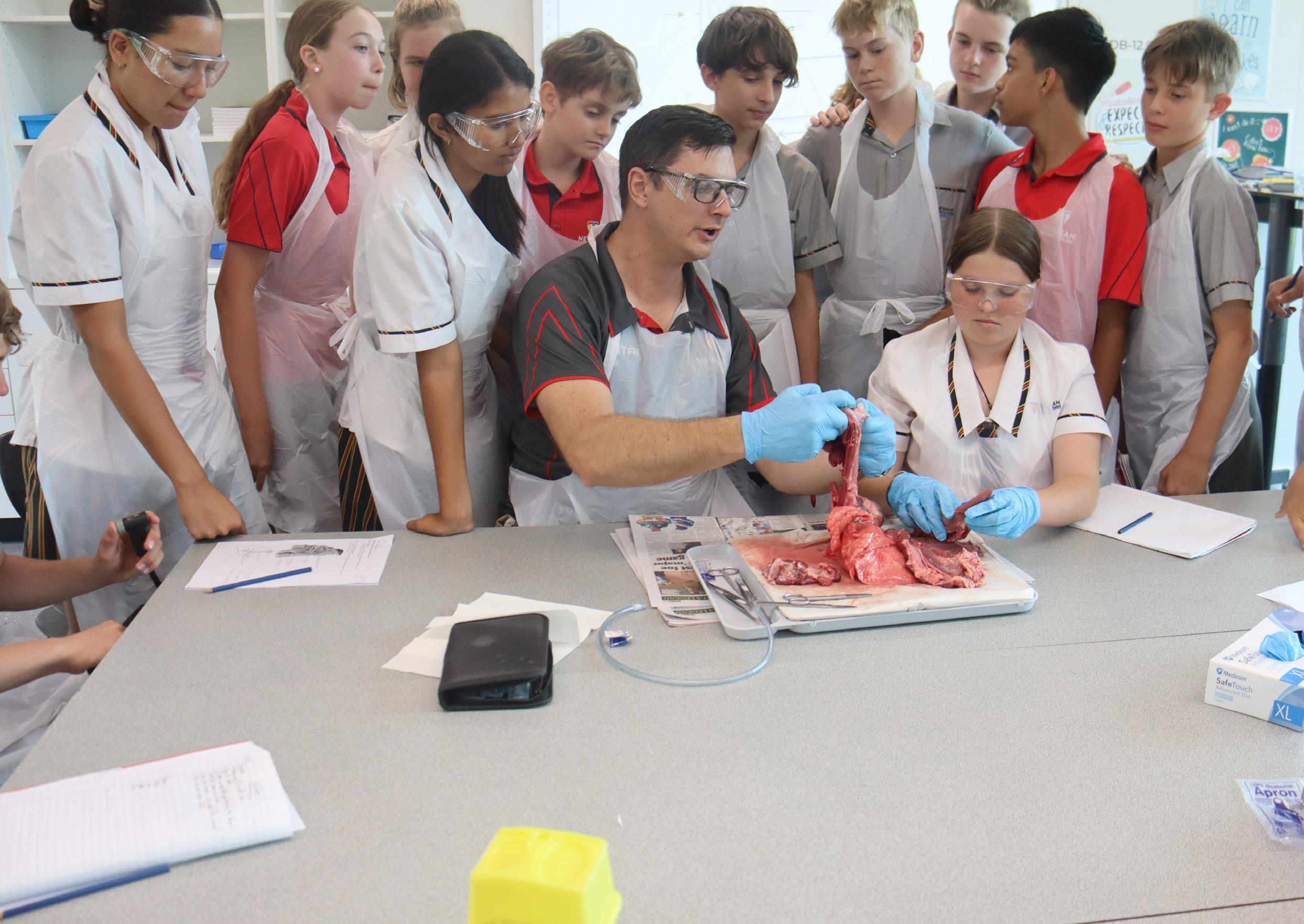
PREREQUISITES: C+ Grade or better in Year 9 Science
Advances in Medicine and Health Sciences constitute some of the most important innovations made by humankind. From the germ theory of disease through to gene therapies, exploration of the Health Sciences has captured the imagination of countless curious minds. Whether you want to further appreciate and care for people and animals or satisfy your curiosity around the wonders of life, the study of Health Sciences will arm you with the foundational knowledge to move towards better understanding of the world around you.
Having completed the Health Science electives, students will have practical skills, literacy and scientific knowledge around the fields of Medicine, Veterinary Science, Medical Laboratory Science and Sports/Exercise Science, among others. Armed with this knowledge and technical literacy; the plant, animal and microbial kingdoms will be opened up for further exploration by our students in senior Biology, Chemistry and other future studies.
Some of the scientific topics covered during the year will include:
• Biochemistry, Macromolecules and Medical Diagnostics.
• Cells, Viruses and Pathology Investigation.
• Cellular Transport, Respiration, Division and Embryology.
• DNA, Protein Synthesis and Genetic Disease.
• Biotechnology, Healthcare Professions and Healthcare Systems.
In Year 10 the students will continue developing their understanding of human anatomy, physiology and modern healthcare within the North Queensland context.
They will further explore the history of medicine, linking this knowledge with the complexities of our modern healthcare systems and the technology employed within it.
Exploring the myriad of allied health and health professionals within the local healthcare communities, students explore the career pathways, key knowledge and advanced technology that is utilised when professionals are caring for their local communities. These units aim to arm Year 10 students with a strong foundation in Biology, Chemistry and Exercise Science, accelerating their understanding and study skills as they move into senior sciences.
Students will need to regularly complete additional work at home for building topic knowledge, preparing for written assessments (scientific reports, research investigations) and exam preparation. Students should be prepared to spend approximately 2 hours per week on these tasks.
Directly links to the Year 11 & 12 Biological Science ATAR course.
Concepts covered will also set foundations for topics studied in ATAR Chemistry.

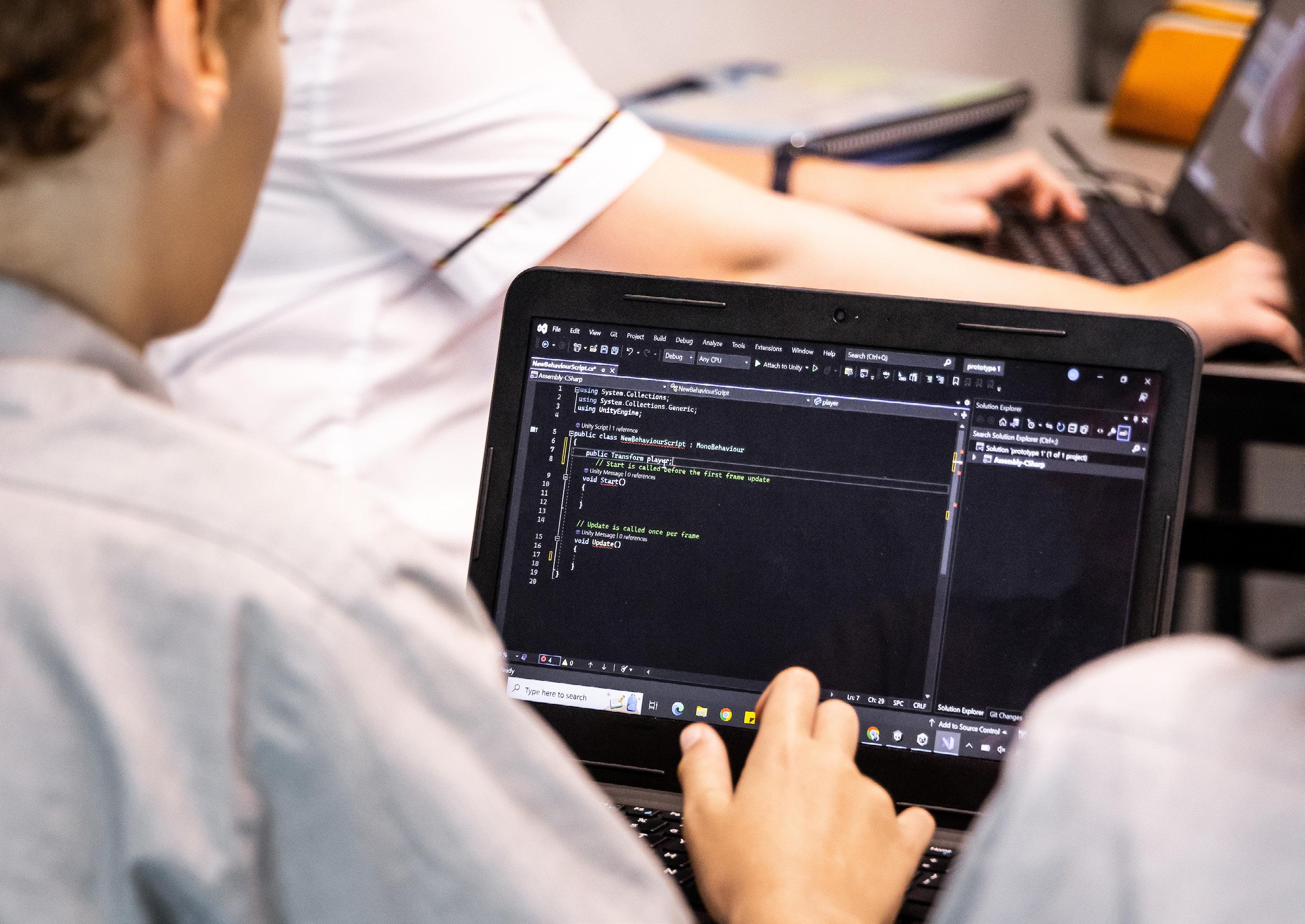
Year 10 Interactive Multimedia Development offers students the chance to explore digital media and gamification. They will learn the principles of interactive design, focusing on storytelling, interactivity, and feedback mechanisms.
The course includes hands-on experience with digital tools and software to create multimedia content like graphics, audio, and video. Students will design engaging experiences with clear goals, rules, and social interaction, developing skills valuable in careers like digital media production, game design, and interactive content development.
Some of the knowledge and skills covered during the Year 10 Interactive Multimedia Development semester will include:
• Principles of Interactive Design: Expanding on previous design concepts, students will delve deeper into user experience (UX) design, navigation, and interface design.
• Advanced Storytelling Techniques: Building on earlier units, students will enhance their ability to craft engaging narratives, integrating them into more complex multimedia projects.
• Gamification Elements: Further exploration of game-like elements such as rewards, challenges, and progression systems to create more sophisticated and engaging user experiences.
• Digital Media Tools: Advancing skills in software applications used for creating interactive multimedia content, including graphic design, animation, video editing, and audio production tools.
• Programming: Building on prior coding experience, students will deepen their understanding of scripting languages, such as C#, to enable more complex interactive functionalities in their projects.
• Project Management: Developing more advanced project management skills, including planning, organizing, and managing multimedia projects with greater complexity.
• Collaboration and Teamwork: Enhancing teamwork skills by working in groups on more intricate multimedia projects, focusing on effective communication and collaboration.
• Ethical and Social Considerations: Exploring more complex ethical and social issues related to multimedia content creation, focusing on responsible digital citizenship.
• Presentation and Communication: Refining presentation skills, enabling students to effectively showcase and communicate their multimedia projects to various audiences.
HOMEWORK AND STUDY EXPECTATIONS:
This elective is mainly practical but includes some theory. Most work is done in class, with unfinished tasks completed as homework. Hands-on learning is emphasised, supported by relevant theoretical concepts.
Year 11 & 12: QCAA Applied ICT, VET Certificates or diplomas in Interactive Digital Media, Multimedia, or Information Technology.
PREREQUISITES: NIL
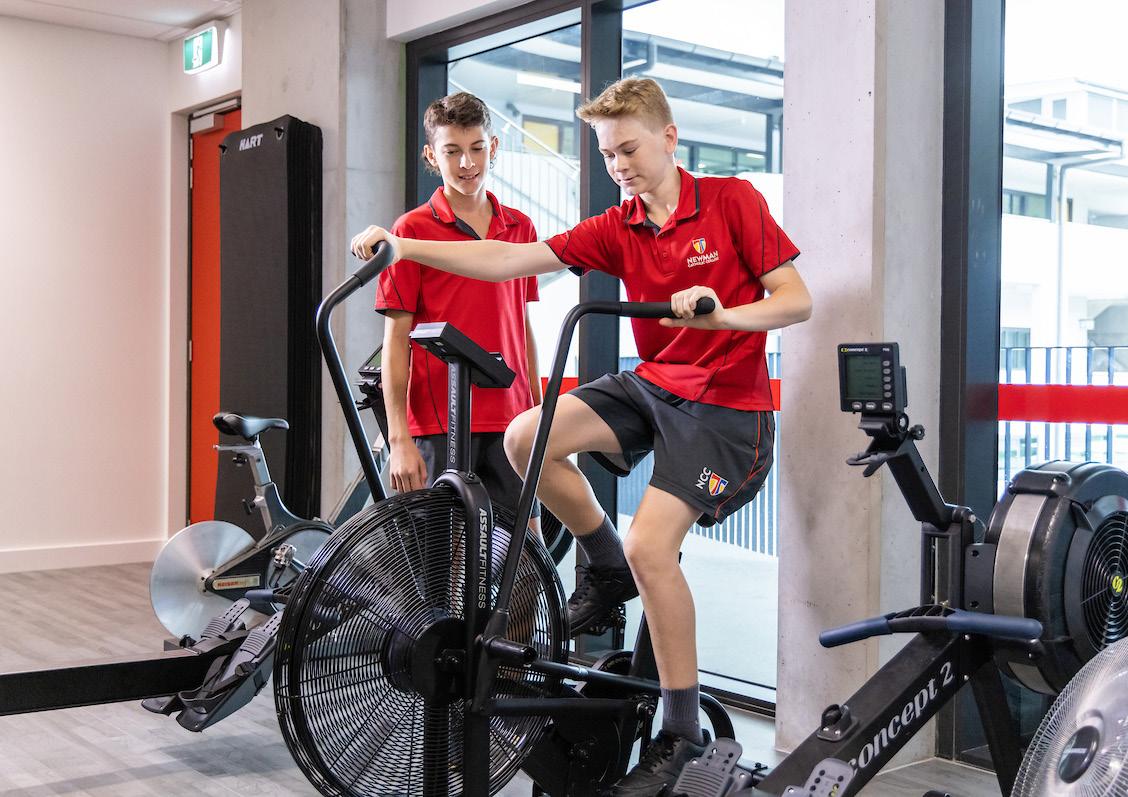
Introduction to Sport, Fitness and Recreation is delivered as a Year 10 short course by qualified school staff via a third party arrangement with external Registered Training Organisation (RTO) Binnacle Training. This short course incorporates 4 elective units of competency towards the qualification SIS30321 Certificate III in Fitness. This course offers a comprehensive introduction to key topics such as sport coaching, personal development, selfawareness, healthy eating, and fitness programs. Students will gain practical knowledge and skills to foster a healthy lifestyle and inspire others to do the same. Whether you aim to pursue a career in the sports industry or simply enhance your personal well-being, this course provides the foundational understanding necessary to succeed. Get ready to explore the multifaceted aspects of fitness and recreation in a supportive and engaging environment.
Successful completion of this short course contributes a maximum 2 credits towards a student’s QCE (partial completion of qualification: SIS30321 Certificate III in Fitness).
In studying an Introduction to Sport, Fitness and Recreation, students will learn about:
• Introduction to concepts of fitness.
• Planning and conducting fitness sessions for adolescent participants.
• Exploring principles of personal and professional wellbeing.
• Developing wellness plans.
• Introduction to Sport and Recreation.
• Planning and Delivering Sport-Specific Sessions for foundation level participants.
• Exploring concepts of self-awareness and personal development.
• Providing wellness consultations.
• Outdoor Recreation and Adventure Sports.
Program delivery will combine both class-based tasks and practical components in a real sport environment at the school. This involves the delivery of sport and fitness programs to real participants within the school community. A range of teaching/learning strategies will be used to deliver the competencies. These include practical activities involving participants as well as group work with peers. Evidence contributing towards competency will be collected throughout the short course.
The elective, Introduction to Sport, Fitness and Recreation will predominantly be used by students as a Year 10 pathway into a full qualification as a Year 11 & 12 subject e.g. Certificate III in Fitness. It may also be used by students seeking to enter the sport, fitness and recreation industry as a community coach, sports coach, athlete, volunteer or activity assistant.
$80 per year.


PREREQUISITES: Year 9 Italian or by Application to Mr Chen
Selecting Italian and/or the Certificate II in Applied Language (Italian) allows students to develop foundational skills in one of the world’s most spoken languages. The course focuses on essential vocabulary and phrases for everyday and workplace communication, helping students navigate familiar interactions.
By learning Italian, students enhance their communication skills, cultural understanding, and critical thinking, gaining transferable skills valuable in future studies and careers where bilingual communication is an asset. This subject offers a strong foundation for engaging with the global community.
Some of the knowledge and skills covered for General Italian:
• Use written Italian to initiate interactions in familiar and unfamiliar contexts on the term topic.
• Summarise and collate information from different sources and perspectives to compare how ideas and concepts are expressed and organised in Italian texts and contexts.
• Observe how texts are created for different purposes and audiences.
• Respond to narratives, identifying language features that do not translate easily between cultures, mediating these ideas and expressing insights in Italian while adjusting language use for different audiences.
• Respond to and create a range of informative texts for different purposes and audiences.
• Organise ideas according to themes or sequence events using specific time words and connectives. They also use verbs to express modality.
• recognise the key features of grammar and sentence structure that are distinctive to Italian and apply them in new contexts.
• explain how culture and language shape their own and others’ communication practices, and reflect on how their own cultural experience impacts on interactions with Italian speakers.
Additional knowledge and skills covered for Certificate II in Applied Language (Italian) will include:
• Conduct basic oral communication for social purposes in Italian.
• Conduct basic workplace oral communication in Italian.
• Read and write basic workplace documents in Italian.
• Read and write basic documents for social purposes in Italian.
• This course provides a foundational introduction to VET Italian, preparing students for further studies of Certificate III in Applied Language (Italian) and careers in the relevant fields.
This elective is designed to be an equal mix of practical and theoretical components. While most practical work, such as role play tasks, will be done during class, students will also engage with theoretical aspects, such as grammar study, to deepen their understanding.
Year 11 & 12 QCAA General Subject Italian and/or Certificate III in Applied Language (Italian).
$145 per term (Certificate students only).

PREREQUISITES: Year 9 Japanese or by Application to Mr Chen
Selecting Japanese and/or the Certificate II in Applied Language (Japanese) allows students to develop foundational skills in one of the world’s most spoken languages. The course introduces students to basic Japanese, focusing on essential vocabulary and phrases for simple and direct communication in familiar contexts. With an emphasis on social and workplace communication, students learn to navigate everyday interactions effectively. By engaging in this subject, students enhance their communication skills and cultural understanding, which are increasingly vital in our interconnected world. The course fosters critical thinking and problem-solving abilities, as students learn to interpret and respond to basic Japanese in various contexts. Additionally, the skills acquired in this course are highly transferable, benefiting students in future studies and diverse career paths where bilingual communication is an asset. Overall, Japanese and the Certificate II in Applied Language (Japanese) provide a solid foundation for students aiming to expand their horizons and engage with the global community.
Some of the knowledge and skills covered for Japanese:
• Use written Japanese to initiate interactions in familiar and unfamiliar contexts on the term topic.
• Summarise and collate information from different sources and perspectives to compare how ideas and concepts are expressed and organised in Japanese.
• Observe how texts are created for different purposes and audiences.
• Respond to narratives, identifying language features that do not translate easily between cultures, mediating these ideas and expressing insights in Japanese while adjusting language use for different audiences.
• Explain how culture and language shape their own and others’ communication practices, and reflect on how their own cultural experience impacts on interactions with Japanese speakers.
This course provides a foundational introduction to the senior general subject Japanese, preparing students for further studies of Japanese in Year 11 and 12 and careers in the relevant fields.
Additional knowledge and skills covered for Certificate II in Applied Language (Japanese) will include:
• Conduct basic oral communication for social purposes in Japanese.
• Conduct basic workplace oral communication in Japanese.
• Read and write basic workplace documents in Japanese.
• Read and write basic documents for social purposes in Japanese.
This course provides a foundational introduction to VET Japanese, preparing students for further studies of Certificate III in Applied Language (Japanese) and careers in the relevant fields.
This elective is designed to be an equal mix of practical and theoretical components. While most practical work, such as role play tasks, will be done during class, students will also engage with theoretical aspects, such as grammar study, to deepen their understanding.
Year 11 & 12 QCAA General Subject Japanese and/or Certificate III in Applied Language (Japanese).
$145 per term (Certificate students only).
PREREQUISITES: NIL
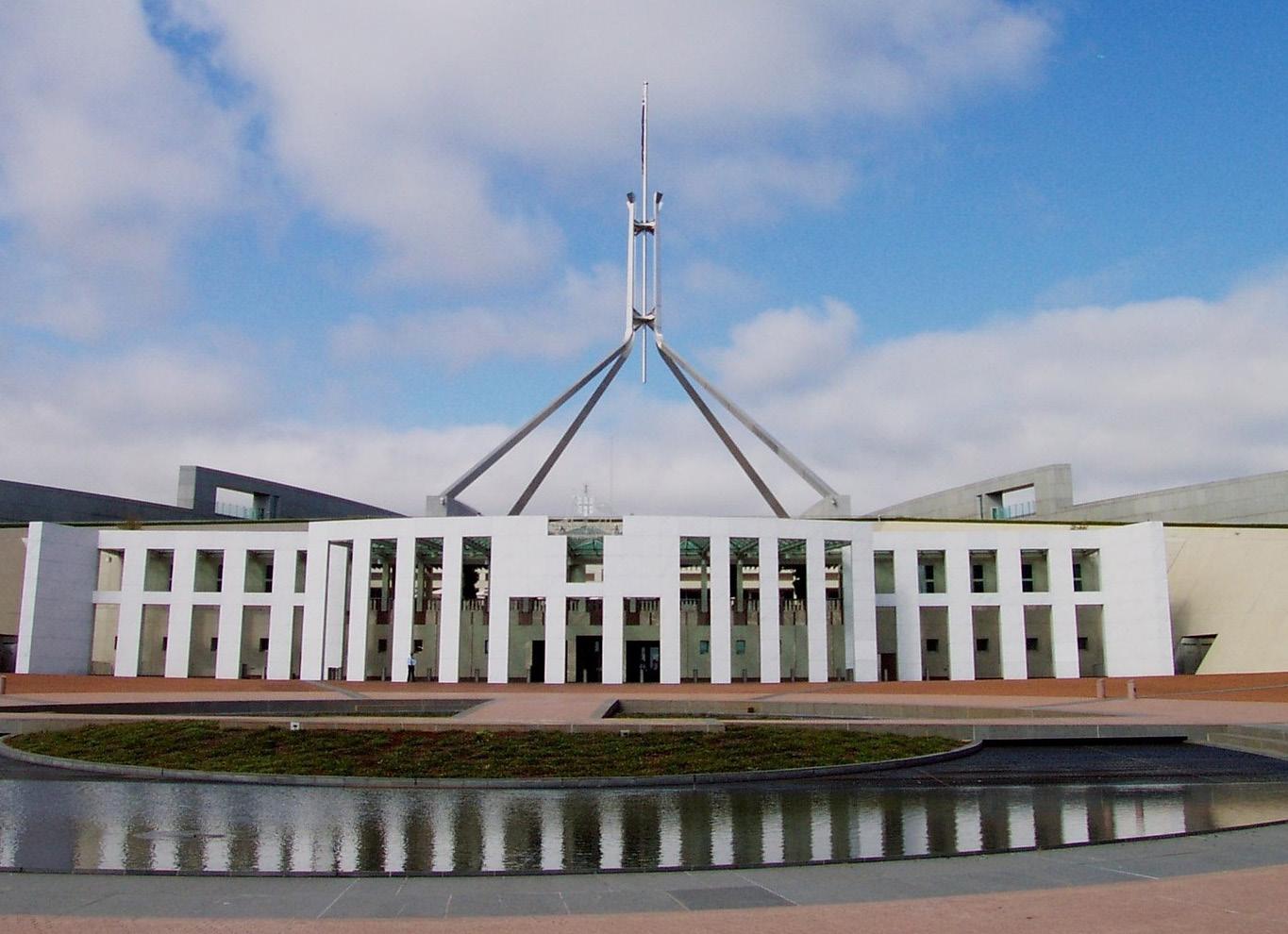
By the end of Year 10, students compare the key features and values of Australia’s system of government to those of another system of government. They describe the Australian Government’s role and responsibilities at a regional and global level. They explain the role of the High Court of Australia. They explain how Australia’s international legal obligations influence the law and government policy. They identify and explain challenges to a resilient democracy and a cohesive society in Australia.
After completing the compulsory curriculum units, students will delve deeper into crime and society. They will examine the nature of deviance and crime and how these concepts are socially constructed. The exploration will include understanding why acceptable social behaviour varies across different times and cultures, and considering the relationships between crime, deviance, and factors such as social class, gender, ethnicity, and age. Students will also study international law, focusing on how social change influences legal development globally and its impact on Australia.
Some of the knowledge and skills covered during the year will include:
• The role of the Parliament and the High Court of Australia in protecting rights under the Constitution, Common Law, and through Federal and State Statute law.
• The Australian Government’s role and responsibilities at a regional and global level.
• The challenges to and ways of sustaining a resilient democracy and a cohesive society in Australia and/or in our region or globally.
• The relativity of crime and deviance over time and across different societies and the processes involved in defining deviant and/or criminal behaviours. The social construction of crime and deviance, and major institutions of social control and criminal justice.
• The analysis of crime and deviance and social control and critically assess the strengths and weaknesses of existing policies, procedures and organisations.
• The key features and values of Australia’s system of government compared with at least one other democratic or non-democratic system of government in the Asia-Pacific region.
• How Australia’s international legal obligations shape Australian law and government policies, including those relating to First Nations Australians, and the issues related to the application of these obligations.
This elective is predominately a theoretical subject, with the opportunity to engage in excursions and discussions with guest speakers and experts. Formal homework will be given on a semi-regular basis. Most work is done in class, but students will also need to complete some flipped learning and assignments both in class and at home. Formal homework will be assigned semi-regularly.
Links to Legal Studies (QCAA General Subject) in Year 11 & 12.
ADDITIONAL COST PER STUDENT NIL
PREREQUISITES: C Grade or better in Year 9 Science
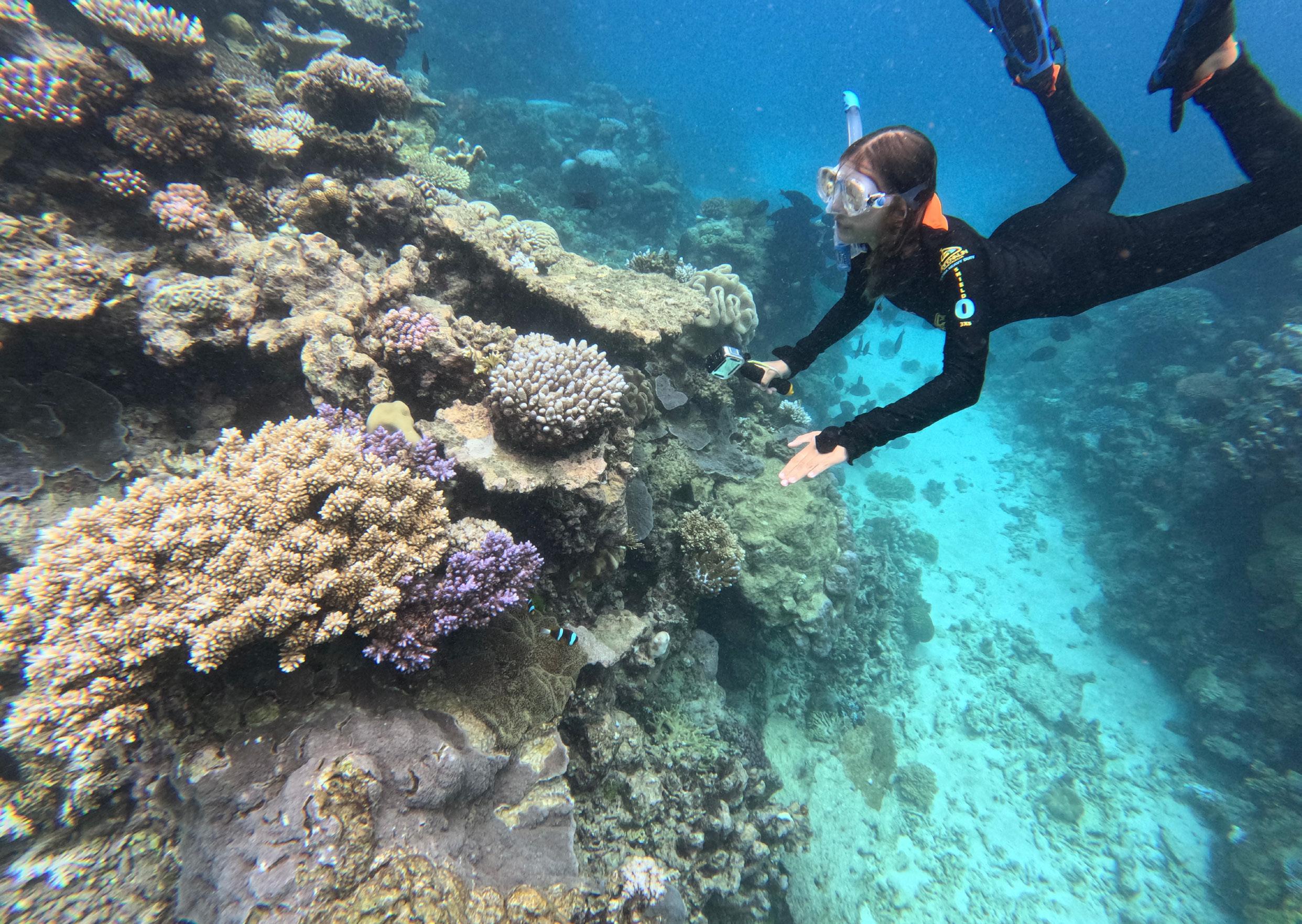
At Newman Catholic College, our students have the extraordinary advantage of being right on the doorstep of the Great Barrier Reef, the largest living structure on Earth. By choosing Marine Science as an elective, students gain the unique opportunity to witness the reef’s beauty firsthand and develop a profound appreciation for its ecological significance.
Moreover, our partnership with James Cook University provides students with invaluable opportunities to engage in cutting-edge research projects. Participating in realworld scientific investigations allows students to apply their knowledge, contribute to ongoing studies, and develop critical research skills that are highly valuable for all fields of science.
Choosing Marine Science at Newman Catholic College not only enriches students’ academic experience but also prepares them for a future in a field that is crucial for understanding and preserving our marine environments.
Some of the scientific knowledge and skills covered during the year will include:
• Marine habitats and ecology.
• Marine Biology and classification.
• Oceanography.
• Coastal engineering.
• Maritime archaeology and shipwreck conservation chemistry.
• Scientific sampling and marine research.
• Diving science and physiology.
The majority of work will be completed in class time however students will need to occasionally complete additional work at home for assessments such as scientific reports, research investigations and exam preparation.
Directly links to the Year 11 & 12 Marine Science ATAR course and Aquatics Practices applied course. Concepts covered will also set foundations for topics studied in ATAR Chemistry, Physics and Earth Sciences.
Optional Reef excursions approx $200.

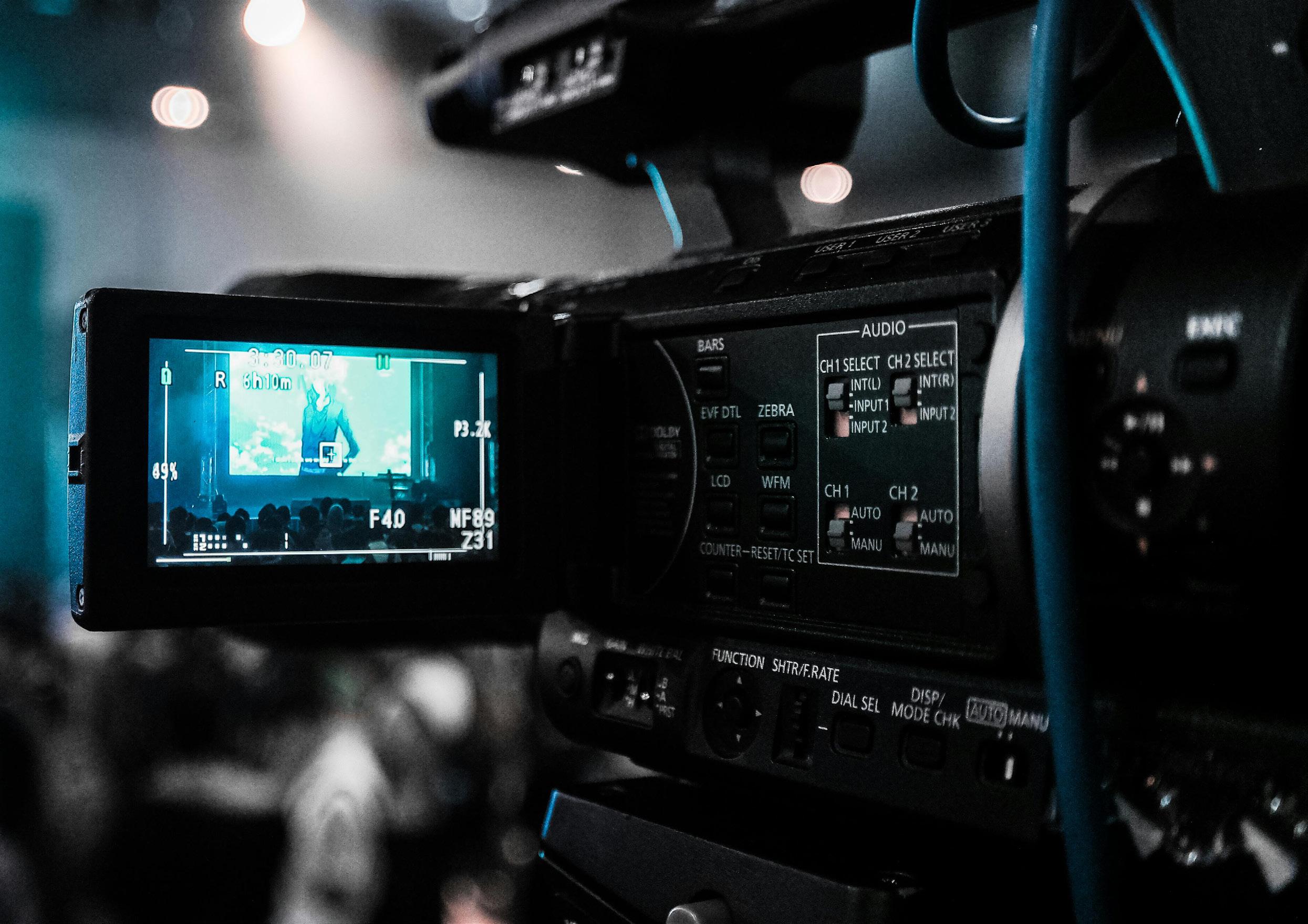
PREREQUISITES: Some prior experience with Photography, Video Editing & Animation
In Media Arts, students build on what they’ve already learned and experienced in Years 7, 8 and 9. They explore important ideas like how media works, how it affects people, and how it’s created. They also learn to make their own media projects, both on their own and with others. This helps them understand the world better and express themselves creatively, whether they’re making media or just enjoying it.
Assessments may include but are not limited to: advertising, animation, documentaries, music videos, news production, short films, posters and text-based works. This learning is inspired by looking at the work of other media producers from different places and backgrounds, and exploring how media is used in various combined forms. By understanding different styles and approaches in media texts, students enhance their own artistic practice. They also collaborate with classmates and teachers throughout this process.
In this course students may be invited on excursions to local studios and sites, and to partake in workshops with local media makers in preparation for Senior Film, Television and New Media.
Knowledge and skills covered during the semester will include:
• Exploring and Responding: Students will analyse and evaluate how and why media arts concepts are manipulated to construct representations in media.
• Creating and Making: Students will use media arts concepts to construct representations and communicate ideas, perspectives and/or meaning.
• Presenting: Students will use responsible media arts practice, concepts and production processes, to create media in a range of genres/styles, for specific audiences.
Through an Inquiry Learning Cycle, students will explore the Key Media Concepts:
• Technologies: the tools used to create meaning in media texts.
• Representations: constructions of people, places, events, ideas and emotions that are applied to create meaning in media texts.
• Audiences: individuals and groups of people for whom moving-image products are made, and who make meanings when they use those products.
• Institutions: organisations or groups of people who enable or constrain moving-image media production and use.
• Languages: systems of signs and symbols organised through codes and conventions to create meaning in media texts.
This elective involves practical work and students will have formal homework throughout the course. Most lead-up work will be done in class, but students are encouraged to complete filming and some editing outside of the classroom to improve their skills. Research for written assignments will also be given as homework.
Year 11 & 12: Film, Television and New Media General (ATAR).
ADDITIONAL COST PER STUDENT
NIL

PREREQUISITES: Some prior experience with Digital Audio Editing, Music or DJing
Studying Music in Practice offers a hands-on musical education by focusing on practical skills and music technology. By the end of Year 10, students will explore how composers and performers use musical elements and devices to engage audiences. They will study music across various styles and cultures, analysing how it communicates ideas and perspectives, including reflections on Australian identity.
The course emphasises practical application, including music technology, composition, and recording techniques. Students will engage in practical tasks such as creating, notating, and documenting their own music, and applying their knowledge in real-world contexts. Mastery of both vocal and instrumental techniques, alongside music technology skills, will enhance their understanding and appreciation of music. Overall, Music in Practice promotes collaboration, personal growth, and prepares students for further education and careers in the music industry through a practical, technology-driven approach.
Music is a powerful form of expression that transcends cultural boundaries and connects people on an emotional level. This practical subject, spread over a 12-month course, emphasises the importance of live performance in developing musicianship, confidence, and collaboration skills.
This unit covers:
• The practical skills needed for live music performance, including stage presence, audience engagement, and technical proficiency. Students participate in rehearsals, workshops, and mock performances, receive peer feedback, and work on collaborative projects to prepare for live gig experiences.
• The creative and technical aspects of composing and recording original music. Students engage in songwriting workshops, learn about arranging and instrumentation, and gain hands-on experience with recording techniques. The unit culminates in the creation of a demo, showcasing their compositions.
This elective is predominantly practical, but formal homework will complement in-class learning. While most work is done in class, you will need to regularly practice at home, including composing and recording music, analysing styles, and preparing for performances. These tasks enhance technical skills and support growth in music.
This Year 10 Music in Practice elective aligns with the QCAA Applied Music in Practice by developing practical skills in music technology, composition, and performance. It prepares students for Year 11 & 12 studies, offering foundational experience that supports pathways to advanced music education and careers in the industry.


PREREQUISITES: Year 7, 8 or 9 Music and/or Music Industry Skills
Studying Music Performance provides a well-rounded musical education by developing essential skills and offering numerous performance opportunities. By the end of Year 10, students will analyse how composers and performers use musical elements and compositional devices to engage audiences. They will evaluate how music across different styles and cultures communicates ideas and perspectives, including celebrating and challenging views of Australian identity.
This subject enhances listening and aural skills, allowing students to manipulate musical elements and compositional devices to express their own ideas in various styles. Students will notate, document, and record their compositions, applying their knowledge of styles and forms in performances. By mastering vocal and instrumental techniques, students gain a deeper appreciation for music and its role in cultural and personal expression. Overall, Music Performance fosters collaboration, personal growth, academic benefits, and a lifelong enjoyment of music, preparing students for further education and careers in the arts.
Music Performance is a structured form of study that not only fosters emotional connections across cultures but also enhances evaluative language skills through composition. Over a 12-month course, this formalised subject focuses on live performances and compositions to cultivate musicianship, build confidence, and promote collaboration among students.
Unit 1 - Music and Identity - Exploration of how music expresses and shapes personal and cultural identity. Students reflect on their own musical preferences and how music influences their sense of self.
Unit 2 - Composition and Songwriting - Students learn the basics of composing music, including melody, harmony, and rhythm. They create their own compositions or songs, exploring different forms and styles.
This elective is predominantly a practical subject; however, formal homework will be assigned to reinforce classroom learning. Most work will be completed in class, but you will need to practice regularly at home. Homework may include composing, analysing music, and researching genres or artists. Additionally, you will be expected to prepare for performances, which involves practising vocal or instrumental techniques. These tasks are designed to enhance your understanding of music theory, improve technical skills, and support your growth as a musician. Consistent effort in these areas will contribute to your success and enjoyment of music.
This Year 10 Music elective prepares students for Year 11 & 12 music studies by developing critical skills and knowledge essential for advanced coursework. The subject lays a foundation for higher-level music education, including performance, composition, and music analysis. It supports pathways to senior secondary music courses, fostering skills that are crucial for pursuing careers in music, performing arts, or further academic study in creative fields. This preparatory work equips students with the analytical, technical, and practical skills needed for success in advanced music studies and related career opportunities.
ADDITIONAL COST PER STUDENT
PREREQUISITES: Minimum C grade in Year 9 HPE

Physical Education provides students with knowledge, understanding and skills to explore and enhance their own and others’ health and physical activity in diverse and changing contexts.
Physical Education in Year 10 is an elective designed to lay a strong foundation for students preparing for the rigorous demands of ATAR Physical Education studies. This elective subject offers an engaging blend of theory and practice, focusing on the development of physical skills, strategic thinking and a deep understanding of health and fitness principles.
Students will explore various sports in order to gain an insight and appreciation of how our psychology, social networks, culture, environments and bodies all connect to influence our activity behaviours and overall physical performance. By the end of the year, students will be wellequipped with the knowledge, skills, and confidence to excel in Senior Physical Education in Year 11 and 12 and pursue their personal fitness goals.
In studying Physical Education, students will learn about:
• Motor learning, functional anatomy, biomechanics and physical activity.
• Sport psychology and physical activity.
• Tactical awareness and physical activity.
• Energy, fitness and training, and physical activity.
Sports may include:
• Volleyball
• Touch / Oz tag
• Basketball / Netball
• Ultimate / Handball
HOMEWORK AND STUDY EXPECTATIONS:
The majority of work will be completed in class time however students will need to occasionally complete additional work at home for video data analysis and research, and assessment and exam preparation.
Directly links to the Year 11 & 12 ATAR Physical Education studies.
This is a recommended prerequisite for Senior Physical Education.
ADDITIONAL COST PER STUDENT NIL

PREREQUISITES: NIL

Selecting Year 10 Design and Technology provides students with essential skills for the future, focusing on how design decisions are influenced by sustainability, innovation, and technology. Students learn to analyse needs and create practical solutions, considering how different technologies contribute to global futures.
The course emphasises sustainable design and project management, with opportunities for collaboration and effective communication using digital tools. This prepares students for careers in fields like architecture and product design, equipping them with creativity and technical proficiency to address modern design challenges.
Some of the knowledge and skills covered will include:
• Design Principles and Processes: Understanding the fundamental principles of design, including form, function, and aesthetics, as well as the iterative nature of the design process.
• Sustainability in Design: Learning how to incorporate sustainable practices and materials into design projects, considering environmental impact and ethical implications.
• Technological Literacy: Gaining familiarity with a variety of tools and technologies used in the design process, such as computer-aided design (CAD) software, 3D printing, and digital fabrication techniques.
• Innovation and Emerging Technologies: Exploring how new technologies and innovative thinking can be applied to solve modern design challenges and create preferred futures.
• Project Management: Developing skills in planning, organizing, and managing design projects, including time management, resource allocation, and risk assessment.
• Critical Analysis and Evaluation: Learning to critically analyse design needs, evaluate solutions against criteria such as sustainability and functionality, and refine ideas accordingly.
• Practical Skills in Production: Applying hands-on skills to create prototypes and final products, using tools and materials safely and effectively.
• Enterprise Skills: Understanding the role of entrepreneurship in design, including how to identify opportunities and bring innovative products or services to market.
This elective is mainly practical but includes some theory. Most work is done in class, with unfinished tasks completed as homework. Hands-on learning is emphasised, supported by relevant theoretical concepts.
Year 11 & 12: QCAA General Design, QCAA Applied Furnishing, VET Cert I & II Construction.
NIL

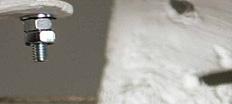
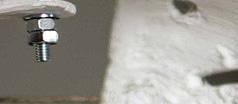

PREREQUISITES: Nil

Selecting Year 10 Robotics equips students with skills in computational thinking and problem-solving. They will learn to define real-world problems, design and modify algorithms, and use object-oriented programming to implement solutions. Students will work on robotics projects, validating their designs with flowcharts, pseudocode, and test cases.
The course emphasises enhancing programming skills, developing and debugging robotic systems, and analysing data from sensors. Design thinking will guide students in prototyping robotic applications and addressing future needs. They will also explore hardware-software interactions, data management, and cybersecurity. This subject prepares students for future studies and careers in robotics and technology.
Some of the knowledge and skills covered during this subject will include:
Computational Thinking:
• Define and decompose real-world problems.
• Design and modify algorithms using object-oriented programming.
• Validate solutions with flowcharts, pseudocode, and test cases.
Programming Skills:
• Develop, modify, and debug robotic systems.
• Write and test code to control robotic functions and integrate sensors and actuators.
Data Management:
• Acquire and interpret data from robotic sensors.
• Clean and validate data for accuracy.
• Model and visualize multidimensional data to analyse trends and make decisions.
Design Thinking:
• Generate and prototype design ideas for robotics applications.
• Develop and apply user stories and design criteria.
• Revise solutions based on analysis and feedback.
Hardware and Software Integration:
• Explore interactions between hardware and software in robotic systems.
• Manage, control, and secure data.
• Develop an understanding of cyber security threats and apply privacy principles.
Project Management:
• Plan, collaborate, and manage individual and group projects.
• Use tools to organise tasks, timelines, and responsibilities.
Interactive Content Creation:
• Create interactive content and prototypes using advanced digital tools to enhance robotics solutions and user experiences.
HOMEWORK
This elective is mainly practical but includes some theory. Most work is done in class, with unfinished tasks completed as homework. Hands-on learning is emphasised, supported by relevant theoretical concepts.
Year 11 & 12: QCAA General Digital Solutions.
NIL
PREREQUISITES: NIL

The Certificate II in Sport Coaching qualification provides a pathway to work in assistant coaching roles working or volunteering at community-based sports clubs and organisations in the Australian sport industry. Individuals with this qualification use a range of basic coaching skills to engage participants in a specific sport. They work under the supervision of a coach. Available with a ‘General’ or ‘Sport Specialty’ Coaching outcome - AFL, NRL, Netball, Rugby Union or Choose Your Own Sport!
The Certificate II in Sport Coaching is delivered by qualified school staff via a third party arrangement with external Registered Training Organisation (RTO) Binnacle Training. This certificate course will gain students 4 QCE points and provides a direct pathway into SIS30321 Certificate III in Fitness.
This engaging course is designed for young sports enthusiasts who aspire to become skilled coaches and leaders. Through a blend of theoretical knowledge and practical experience, students learn the essentials of coaching, including planning effective training sessions, developing athletes’ skills, and fostering teamwork and sportsmanship. Whether you’re aiming to coach at a community level or dreaming of a professional coaching career, this course provides the foundation you need to succeed.
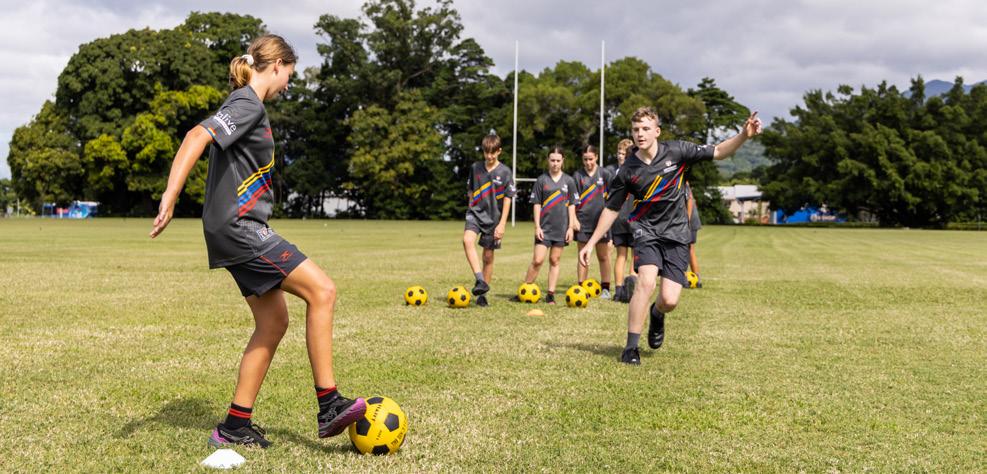
In studying Certificate II in Sport Coaching, students will learn about:
• Working safely in a community coaching role.
• Conducting sport coaching sessions with foundation level participants.
• Developing self-awareness.
• Working effectively with others.
• Respond to emergency situations and applying first aid.
Program delivery will combine both class-based tasks and practical components in a real sport environment at the school. This involves the delivery of sport and fitness coaching programs to real participants within the school community. A range of teaching/learning strategies will be used to deliver the competencies. These include practical activities involving participants as well as group work with peers. Evidence contributing towards competency will be collected throughout the short course.
Certificate II in Sport Coaching will predominantly be used by students as a Year 10 pathway into a full qualification as a Year 11 & 12 subject e.g. Certificate III in Fitness. It may also be used by students seeking to enter the sport, fitness and recreation industry as a community coach, sports coach, athlete, volunteer or activity assistant.
$320 per year per student(Certificate students only).

PREREQUISITES: Year 9 STEM Excellence or by Application to Mr. Donovan
Selecting Year 10 STEM offers students a comprehensive foundation in key areas that are essential for success in today’s rapidly evolving world. Interdisciplinary STEM learning enhances scientific and mathematical literacy while fostering design and computational thinking. It also develops problem-solving and collaboration skills, all of which are crucial for navigating complex real-world challenges.
As STEM fields are broad and diversified, the knowledge and skills gained are applicable to a wide range of careers, from biotechnology engineering and software development to psychology and accounting. By studying STEM, students are equipped with the critical skills that employers are seeking, ensuring they are prepared for the demands of future job markets.
Developed by Mr Donovan in collaboration with a multidisciplinary team including psychologists and experts in gifted learning, STEM Excellence doesn’t seek to just improve student content knowledge, but also develop the following attributes in our high potential learners:
• Critical Thinking skills including resilience to solving complex problems.
• Creativity and Innovation.
• Collaboration and Teamwork.
• Ability to gain new technical skillsets and apply them in unfamiliar contexts.
• Solve problems in inter-disciplinary fields (which better reflect real life).
• Use metacognitive and neuroscientific strategies to build resilience, manage wellbeing and improve learning.
Unit topics for Year 10 (depending on JCU accessibility and expert availability) may include: Medicine (with a potential focus on Pharmacology), Sport Science, Software Development and/ or an independent research topic.
This course is less structured than other courses and students are expected to manage their time in a multitude of ways. Adequate class time is provided for all aspects of independent work, however, project time in class is used completely at the discretion of the student, as long as assessments are submitted by the relevant due dates.
Preparation for further study/ work in all STEM fields. Acceptance into High Potential Programs can provide an edge in selective tertiary programs e.g. Medicine, Dentistry.

PREREQUISITES: NIL

The Arts helps students learn how to express ideas, feelings, and experiences through creating and understanding art. It builds skills in creativity, critical thinking, and appreciation of art. Students also learn to see things from different cultural and personal viewpoints.
In Visual Arts, students build on what they already know and have experienced in Years 7, 8 and 9, getting better and more confident in their artistic skills. They learn to use visual techniques, processes, and materials in creative ways.
This includes but is not limited to: drawing, painting, sculpture, printmaking, time-based work, wearable art and mixed media artworks.
This learning is inspired by looking at the work of artists from different places and backgrounds, and exploring how art is used in various combined forms. By understanding different styles and approaches in art, students enhance their own artistic practice. They also collaborate with classmates and teachers throughout this process.
In this course students may be invited on excursions to local art galleries and sites, and to partake in workshops with local artists in preparation for Senior Visual Art.
Knowledge and skills covered will include:
• Exploring and Responding to artists: students will analyse and evaluate artworks by others and/ or themselves.
• Creating and Making Artworks: students will generate and develop ideas, reflect on their own practice, and manipulate materials to communicate ideas, perspectives and/ or meaning/s.
• Presenting Artworks: students will explore how to curate and present artworks in exhibitions in order to engage audiences.
Unit topics may include but are not limited to:
• Social commentary/ activism
• Identity
• Environmental art
• Tiny worlds
• People
• Humanity
• Symbolism
• Time
This elective mainly involves practical work, but students will have formal homework throughout the course. Most lead-up tasks will be done in class, but students also need to do “mini-tasks” to improve their skills and/ or work on major practical tasks outside of class time. Written assignment work will also be set as homework.
Year 11 & 12: Senior Visual Art General (ATAR subject).

PREREQUISITES: NIL

Selecting Year 10 Web Design and Development equips students with essential digital skills for creating and managing innovative solutions. Students will develop and modify digital content, solve complex problems, and evaluate solutions based on user needs. They will work with databases, design algorithms using object-oriented programming, and cover critical topics such as data management, cybersecurity, and privacy.
The course also explores advanced digital tools for interactive content and involves planning and managing projects using agile methodologies. This subject prepares students for future studies in web design, software development, and IT, and provides skills applicable to various tech-driven careers.
Some of the knowledge and skills covered during the Year 10 Web Design and Development subject will include:
• Digital Solution Development: Creating and modifying innovative digital solutions tailored to real-world problems.
• Problem Decomposition: Breaking down complex problems into manageable components and evaluating alternative solutions based on user requirements.
• Database Management: Acquiring, interpreting, and modelling data with databases, and representing information through content, structure, and presentation.
• Algorithm Design: Designing, validating, and implementing algorithms using object-oriented programming languages.
• Data Management and Security: Understanding how digital systems manage, control, and secure data access, and modelling cybersecurity threats to explore vulnerabilities.
• Interactive Content Creation: Utilising advanced features of digital tools to develop interactive and engaging web content.
• Project Management: Planning, collaborating, and managing agile projects, including applying agile methodologies and working effectively in teams.
• Privacy and Digital Footprints: Applying privacy principles to manage and protect digital footprints, ensuring responsible use of personal information.
• User Experience (UX) Design: Designing user-friendly interfaces and experiences that meet stakeholder needs and preferences.
• Critical Evaluation: Assessing and refining digital solutions against user stories and stakeholder feedback.
This elective is mainly practical but includes some theory. Most work is done in class, with unfinished tasks completed as homework. Hands-on learning is emphasised, supported by relevant theoretical concepts.
Year 11 & 12: QCAA General Digital Solutions.
NIL

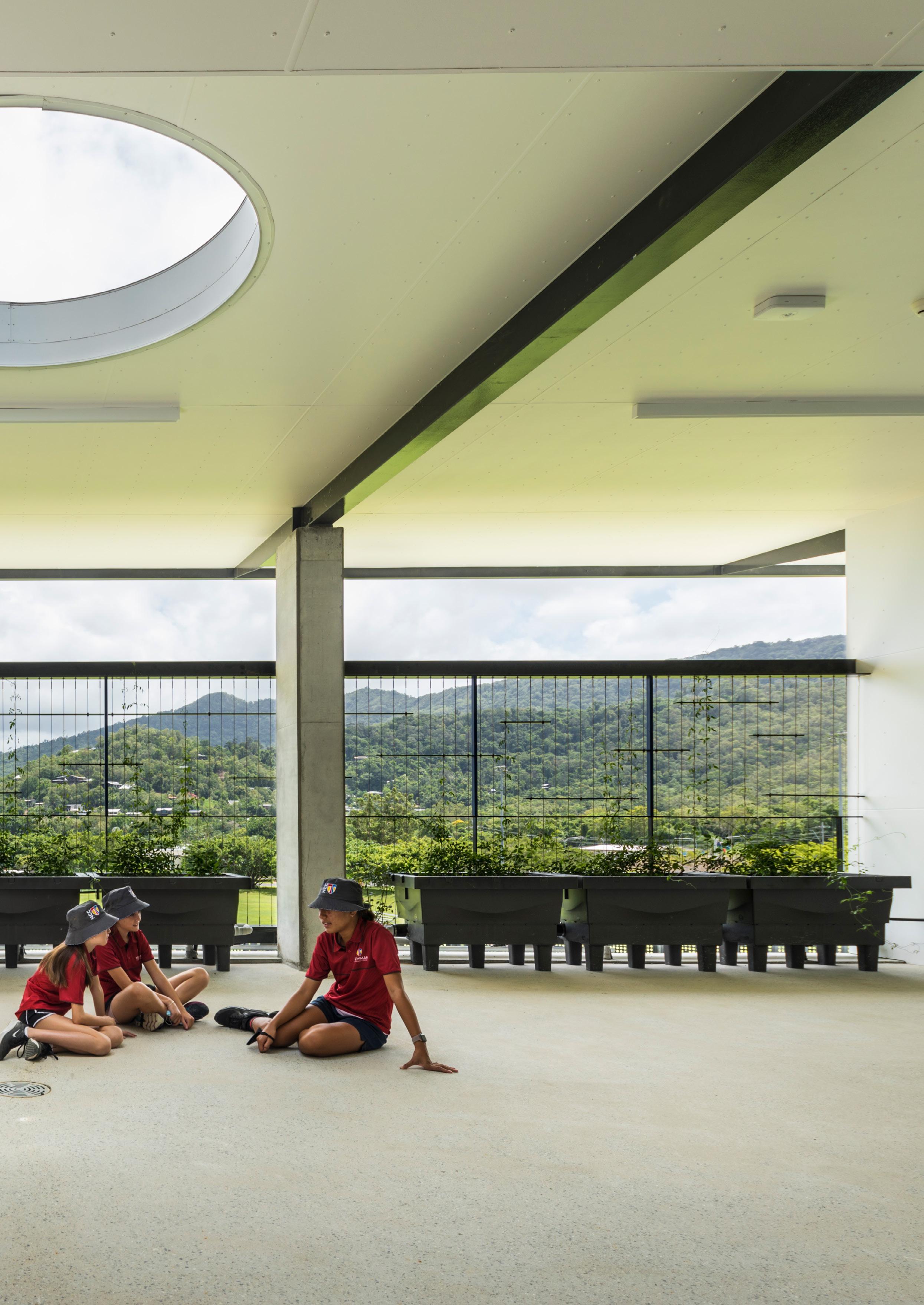

4047 6000
office.newman@cns.catholic.edu.au www.newman.qld.edu.au
